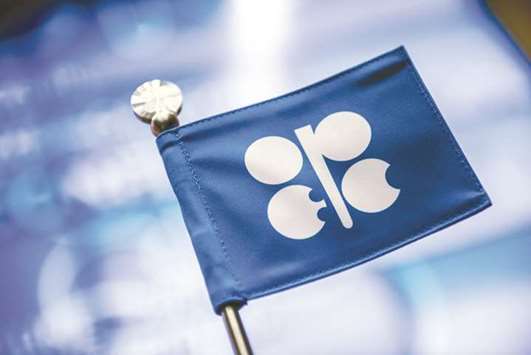Bloomberg/London
Opec is under intense pressure right now from consumers to ease prices by pumping more crude, but for 2019 it sees a more doubtful picture.
The group cut its estimate for global demand for its crude next year due to weakening economic growth and higher output from rivals, notably US shale drillers. The world will need almost 900,000 fewer barrels from the group each day in 2019 – equivalent to Libya’s average output this year.
The weaker outlook comes as pressure is increasing on the Organization of Petroleum Exporting Countries and its allies to pump more to offset the impact of looming US sanctions on Iran and Venezuela’s collapsing oil industry. In addition to tweets from President Donald Trump demanding action, Opec secretary-general Mohammad Barkindo said yesterday that India has written to the group expressing its discomfort with the current market. “There is no cause for alarm,” Barkindo said at the Oil and Money conference in London. Opec and its allies “are ready and willing to continue to make sure that the market remains well supplied.”
The group’s daily production rose by 132,000 barrels in September to 32.76mn. While Iran’s output fell by 150,000 bpd and Venezuela lost 42,000 bpd, Saudi Arabia and Libya more than offset the decline.
Still, Opec’s monthly oil market report provided some reasons to question the sustainability of the rally in crude futures to four-year highs last week.
The group reduced its estimates for the expansion in global consumption in 2018 and 2019, citing slowing economic activity in emerging markets. Demand growth of 1.54mn bpd this year will slow to 1.36mn next year. At the same time, it added 200,000 bpd to its estimate for non-Opec supply this year as the US, Canada, Kazakhstan and Brazil grow faster than expected.
Stockpiles of crude and refined products in industrialised countries rose by 14.2mn barrels in August, a second consecutive monthly increase. The outlook for supply and demand in 2019 indicates that inventories could continue to rise, Barkindo said.
Oil prices could fall next year as the “fear factor” that’s currently gripping the market subsides, Ian Taylor, chairman of the world’s largest independent oil trader Vitol Group, said in an interview with Bloomberg television on Wednesday.



